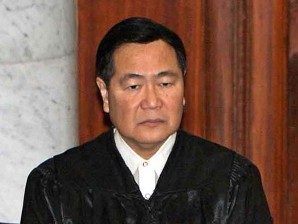MANILA, Philippines—Supreme Court Associate Justice Antonio Carpio fears that the declaration of the cybersex provision as constitutional in Republic Act 10175 or the Cybercrime Prevention Act could trigger an increase in free pornographic websites.
In his separate concurring and dissenting opinion, Carpio on Monday said free pornographic websites should be the one banned under the law instead of its fee-based counterparts because it is accessible to minors.
“Section 4(c)(1) of the Cybercrime Law limits the ambit of its prohibition to fee-based websites exhibiting sexual organs or sexual activity. In doing so, it leaves outside its scope and unpunished…non-fee based porn websites,” Carpio said.
Carpio pointed out that fee-based websites users are narrowed down to credit card owners who affirm they are adults while free and open porn sites are accessible to all, minors and adults alike.
“Instead of purging the internet of pornographic content, Section 4(c)(1) will trigger the proliferation of free and open porn websites which, unlike their fee-based counterparts, are not subject to criminal regulation,” Carpio said.
“It is doubtful whether Congress, in failing to tailor Section 4(c)(1) to narrowly advance state interests, foresaw this worrisome and absurd effect. It is, unfortunately, an altogether common by-product of loosely crafted legislations,” Carpio added.
The high court last week declared as constitutional majority of the provisions of the Cybercrime Law including internet libel.
The high court justices voted per questioned provision on the Cybercrime law.
